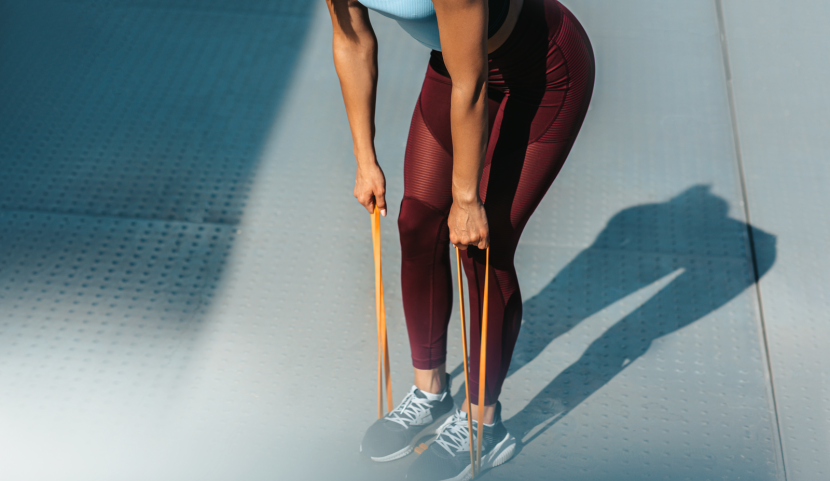Osteoporosis
By Debbie Wyer on 27 October 2022

Osteoporosis is a condition that causes bones to become thinner and more fragile and is most common in women.
In our late 20’s we have peak bone mineral density and then it starts to decline. From 45-55, bone breakdown occurs at a faster pace in women due to the effects of the menopause and the reduction of oestrogen. Women may lose 10-30% of their bone density over a 5-year period of the menopause.
There are several risk factors for osteoporosis, including family history, being female, having a small frame, smoking, drinking too much alcohol, history of anorexia and not getting enough calcium or vitamin D.
Having osteoporosis doesn’t always mean fractures are inevitable and can be treated and reversed to Osteopenia (which is less severe). Although, they do become more likely with poor balance, loss of muscle mass and strength.
Research has shown, we can improve our bone density and prevent Osteoporosis through what we eat, by doing activities that put stress on our bones, improving balance and getting enough vitamin D.
It’s never too early to start looking after your bones.
Nutrition
Ensure your diet is rich in bone-healthy nutrients - diary, green leafy veg (moderate spinach due to oxalic acid reducing calcium absorption), soya beans, tofu, nuts but not in excess and oily fish. Reduce fizzy drinks, excessive alcohol, caffeine, fat, salt and vitamin A
Avoid negative lifestyle habits
Maintain a healthy body weight, avoid smoking and excessive drinking
Get outside
Safe exposure to sunshine will help you get enough vitamin D
Exercise
Include weight-bearing, muscle strengthening and balance-training exercises.
So, if you have spare time in your day, here are some suggestions
- Get outside in the sunshine and go for a walk, changing up the terrain
- Stand on one leg, don’t forget to change sides
- Press-ups on the wall or sturdy furniture
Absolutely, if you have been to any of my Pilates classes, you will know I talk about bone loading a lot and include lots of exercises that are weight bearing. To stimulate bone building, your bones tissue must be exposed to mechanical loads exceeding those experienced in everyday activities.
Pilates exercises not only help to increase bone density and reduce the risk of fractures, they also help improve balance, co-ordination and movement patterns. This is why I always include some sort of resistance training (resistance band), bone loading, body weight exercises and balance work in all my Pilates classes.

